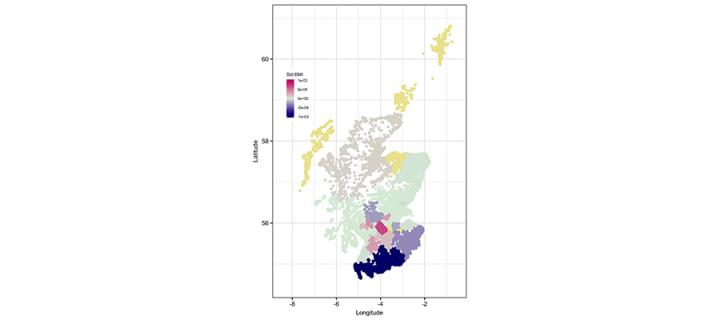Lifestyle changes can close regional obesity gap
MRC Human Genetics Unit study suggests targeting lifestyle could help reduce health inequalities in Scotland: October 2017

There are major health inequalities between regions in Scotland. People living in the most deprived areas can expect to live up to seven years less than those living in the most affluent regions. Both genetics and lifestyle vary between Scottish regions but until now their relative impact on regional variation in obesity was unclear. Professor Chris Haley, Dr Carmen Amador and colleagues examined health information from 11,000 people from across Scotland, to determine whether genetic factors or lifestyle differences were the cause of regional differences in obesity rates.
They looked at health traits related to obesity, including weight and body mass index (BMI), from people living in different regions. These figures were analysed together with genetic information and records of lifestyle and socio-economic factors. When the team compared data between geographical regions, they found that lifestyle factors such as smoking, alcohol, diet and other measures of deprivation, had the biggest impact on differences in obesity rates.
The researchers say that helping people to change their diet, activity levels and behaviour could reduce differences in obesity rates, and so help narrow the health divide between regions.
The research, published in the journal Nature Communications, was funded by the Medical Research Council. Participants for the study were drawn from Generation Scotland, a research resource with health data available from more than 20,000 volunteers.
Our findings reveal that the factors that have the greatest impact on regional obesity rates can be modified. This is good news because it means we can do something about the problem and potentially narrow the health gap between areas that are least and worst affected.
Our research supports the conclusion that if we are to understand and then reduce the causes of health inequalities, we need to take into account both genetic and lifestyle differences between individuals.

